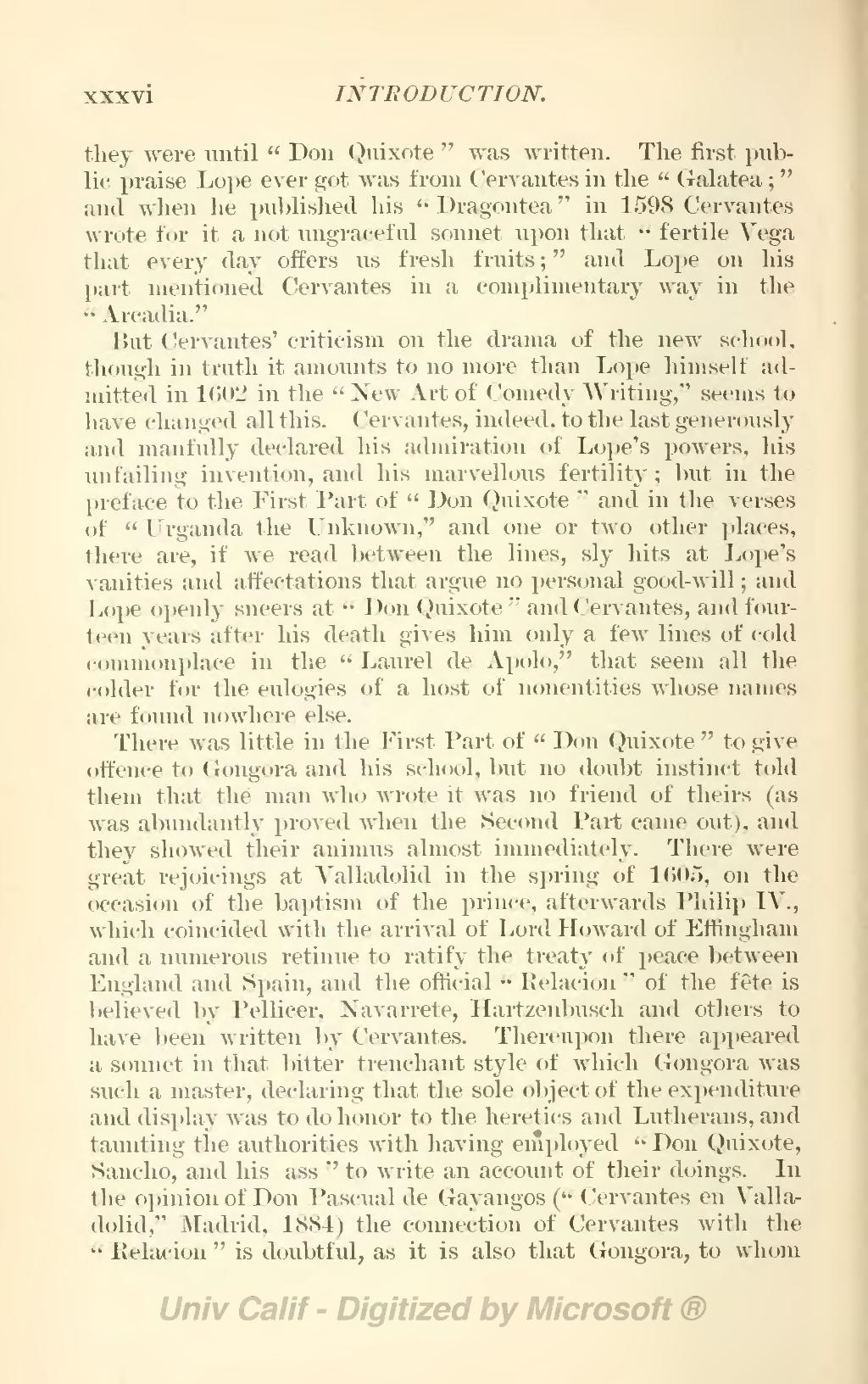they were until "Don Quixote" was written. The first public praise Lope ever got was from Cervantes in the "Galatea;" and when he published his "Dragontea" in 1598 Cervantes wrote for it a not ungraceful sonnet upon that "fertile Vega that every day offers us fresh fruits;" and Lope on his part mentioned Cervantes in a complimentary way in the "Arcadia."
But Cervantes' criticism on the drama of the new school, though in truth it amounts to no more than Lope himself admitted in 1602 in the "New Art of Comedy Writing," seems to have changed all this. Cervantes, indeed, to the last generously and manfully declared his admiration of Lope's powers, his unfailing invention, and his marvellous fertility; but in the preface to the First Part of "Don Quixote" and in the verses of "Urganda the Unknown," and one or two other places, there are, if we read between the lines, sly hits at Lope's vanities and affectations that argue no personal good-will; and Lope openly sneers at "Don Quixote" and Cervantes, and fourteen years after his death gives him only a few lines of cold commonplace in the "Laurel de Apolo," that seem all the colder for the eulogies of a host of nonentities whose names are found nowhere else.
There was little in the First Part of "Don Quixote" to give offence to Gongora and his school, but no doubt instinct told them that the man who wrote it was no friend of theirs (as was abundantly proved when the Second Part came out), and they showed their animus almost immediately. There were great rejoicings at Valladolid in the spring of 1605, on the occasion of the baptism of the prince, afterwards Philip IV., which coincided with the arrival of Lord Howard of Effingham and a numerous retinue to ratify the treaty of peace between England and Spain, and the official "Relacion" of the fete is believed by Pellicer, Navarrete, Hartzenbusch and others to have been written by Cervantes. Thereupon there appeared a sonnet in that bitter trenchant style of which Gongora was such a master, declaring that the sole object of the expenditure and display was to do honor to the heretics and Lutherans, and taunting the authorities with having employed "Don Quixote, Sancho, and his ass" to write an account of their doings. In the opinion of Don Pascual de Gayangos ("Cervantes en Valladolid," Madrid, 1884) the connection of Cervantes with the "Relacion" is doubtful, as it is also that Gongora, to whom
